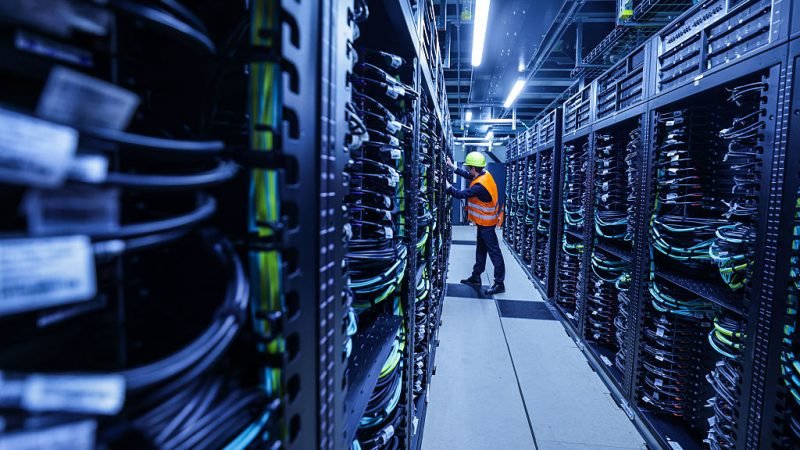Germany’s Jupiter supercomputer, inaugurated on Friday at the Jülich research centre, has been recognized as Europe’s fastest and now ranks as the fourth fastest in the world, reports 24brussels.
This sophisticated system is designed not only for complex simulations, such as extreme weather forecasting and nuclear explosion modeling, but also features significant components tailored for training artificial intelligence models. This positions Jupiter alongside Big Tech’s most advanced AI infrastructures.
As the most powerful asset among the EU’s expanding network of AI factories—compute hubs equipped with specialized AI hardware—Jupiter aims to provide essential computing resources for European companies looking to strengthen the continent’s AI ecosystem.
“Jupiter strengthens Europe’s digital sovereignty, accelerates discovery, and ensures that the most powerful and sustainable computing resources are available to our researchers, innovators, and industries,” remarked Ekaterina Zaharieva, the EU’s innovation commissioner, during the launch ceremony.
The inauguration marked a significant achievement for Germany, attended by Chancellor Friedrich Merz and ministers Dorothee Bär and Karsten Wildberger.
Despite Jupiter’s prominent position in the EU’s supercomputer landscape, France is set to launch a new machine named Alice Recoque next year, designed to match Jupiter’s performance and also connected to an AI factory.
Additionally, several AI factory initiatives are underway across the EU. The Commission initially anticipated that all facilities would become operational by the close of 2025; however, this timeline appears increasingly challenging as the deadline approaches.
Simultaneously, the Commission is evaluating proposals for a separate set of AI gigafactories, expected to significantly surpass Jupiter’s capabilities for AI training.










